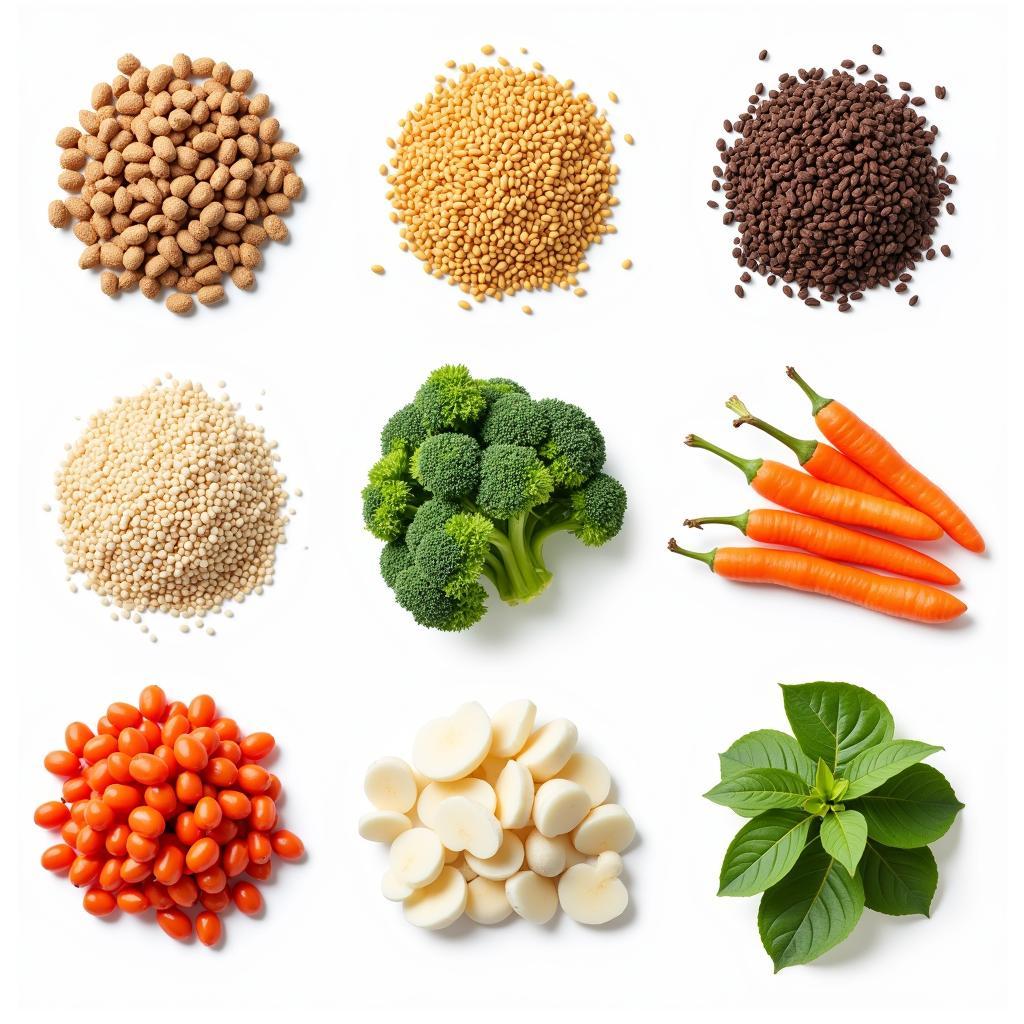Keeping chickens healthy and productive means understanding their dietary needs and, importantly, what foods they absolutely shouldn’t eat. Knowing What Food Is Poisonous To Chickens can prevent serious health issues and even fatalities in your flock. This comprehensive guide will explore the common foods toxic to chickens, helping you keep your feathered friends happy and thriving.
Common Culprits: Foods Toxic to Chickens
Several everyday foods can be surprisingly harmful to chickens. Here’s a breakdown of some of the most common offenders:
- Avocado: Avocado skin and pit contain persin, a fungicidal toxin that can cause respiratory distress, fluid accumulation around the heart, and even death in chickens. While the flesh itself contains less persin, it’s best to avoid avocados altogether.
- Chocolate: Like in dogs, theobromine in chocolate is toxic to chickens. Dark chocolate is especially dangerous due to its higher theobromine content. Symptoms of chocolate poisoning can include hyperactivity, tremors, seizures, and heart problems.
- Coffee and Tea: Caffeine, present in coffee and tea, stimulates the central nervous system and can cause heart problems, hyperactivity, and even death in chickens.
- Citrus Fruits: While small amounts of citrus fruits might not cause immediate harm, excessive consumption can lead to decreased egg production and digestive issues.
- Dried Beans: Raw, dried beans contain hemagglutinin, a toxin that can interfere with nutrient absorption and cause digestive upset. Cooked beans are generally safe, but it’s best to offer them sparingly.
- Green Potatoes and Tomato Leaves: These contain solanine, a toxic compound that can cause neurological problems, diarrhea, and even death in chickens. Ripe tomatoes are generally safe in moderation.
- Onions and Garlic: While these can add flavor to human dishes, they can cause anemia and damage red blood cells in chickens. Long-term consumption can lead to weakness and other health issues.
- Raw Eggs: Feeding raw eggs to chickens can encourage egg-eating behavior, where chickens break and consume their own eggs.
Can Chickens Eat Apple Seeds? The Surprising Truth
While apples themselves are a healthy treat for chickens, the seeds contain amygdalin, which can release cyanide when digested. However, the amount of cyanide in a few apple seeds is generally too low to cause harm. It’s still a good practice to core apples before offering them to your flock to minimize any potential risk.
What About Other Fruit Seeds?
Stone fruits, such as cherries, peaches, plums, and apricots, also contain amygdalin in their pits. These pits should be avoided entirely, as they contain higher concentrations of amygdalin than apple seeds.
Moldy Food: A Hidden Danger
Moldy food can contain mycotoxins, which are harmful to chickens and can cause a range of health problems, including respiratory issues, liver damage, and even death. Always ensure that any food you offer your chickens is fresh and free of mold.
Identifying Moldy Food
Look for visible mold growth, discoloration, and a musty odor. If you suspect food is moldy, discard it immediately.
“Preventing illness in your flock starts with providing a safe and healthy diet,” says Dr. Emily Carter, DVM, a poultry specialist with over 20 years of experience. “Knowing which foods are toxic is crucial for responsible chicken ownership.”
Long-Term Effects of Toxic Foods
While some toxic foods may cause immediate symptoms, others can have long-term health consequences. Chronic exposure to low levels of toxins can weaken the immune system, making chickens more susceptible to diseases.
 Healthy Chicken Feed Options
Healthy Chicken Feed Options
What to Do if Your Chicken Eats Something Toxic
If you suspect your chicken has ingested a toxic substance, contact a veterinarian immediately. Timely intervention is crucial for a successful recovery.
“Quick action is essential in cases of potential poisoning,” adds Dr. Carter. “The sooner you seek veterinary care, the better the chances of a positive outcome.”
Conclusion
Understanding what food is poisonous to chickens is a fundamental aspect of responsible chicken keeping. By avoiding these toxic foods and providing a balanced diet, you can ensure your flock stays healthy, happy, and productive. Remember, a little prevention can go a long way in protecting your feathered friends.
FAQ
- Can chickens eat cooked potatoes? Yes, cooked potatoes without the skin are generally safe for chickens in moderation.
- Are grapes toxic to chickens? No, grapes are not toxic to chickens and can be offered as an occasional treat.
- What are the signs of poisoning in chickens? Signs can vary depending on the toxin, but common symptoms include lethargy, loss of appetite, diarrhea, respiratory distress, and neurological problems.
- Can chickens eat bread? While bread isn’t toxic, it offers little nutritional value and shouldn’t be a staple in their diet.
- Can chickens eat raw meat? Yes, chickens can eat raw meat, but it should be offered in moderation and sourced responsibly to minimize the risk of bacterial contamination.
- Are rhubarb leaves poisonous to chickens? Yes, rhubarb leaves contain oxalic acid, which is toxic to chickens and can cause kidney damage.
- Can chickens eat mushrooms? Some wild mushrooms are toxic to chickens. It’s best to avoid feeding them mushrooms altogether.
Need more help? Contact us at Phone Number: 02437655121, Email: [email protected] Or visit our address: 3PGH+8R9, ĐT70A, thôn Trung, Bắc Từ Liêm, Hà Nội, Việt Nam. We have a 24/7 customer service team.